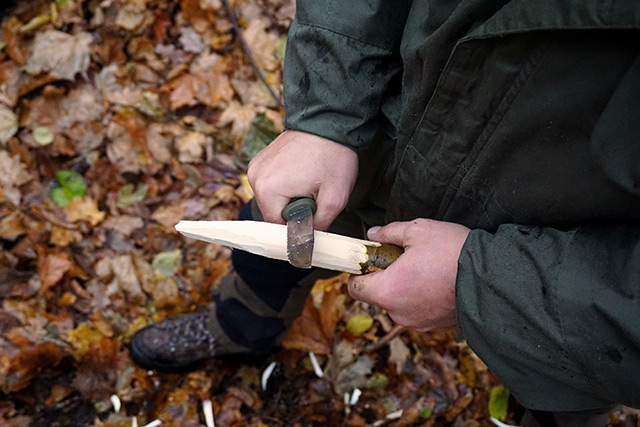SHTF pest control hacks for lice, mosquitoes and ticks
08/12/2021 / By Divina Ramirez

Something as simple as a mosquito bite can lead to a serious, life-threatening disease. Therefore, it’s important to know how to protect yourself from blood-feeding vectors that can carry diseases from one host to another.
Read on to learn how to reduce the threat blood-feeding pests bring. (h/t to SurvivalBlog.com)
Mosquitoes
Mosquitoes are vectors of many infectious diseases that could be fatal if left untreated, such as dengue, malaria and Zika fever. These diseases are transferred through the bite of an infected mosquito.
Mosquitoes can be difficult to avoid in the summer when they are at their most active. The best preventative measure you can take is to eliminate mosquito breeding sites, such as old tires, pails and birdbaths.
Check the perimeters of your home for places with standing water. Standing water shouldn’t be allowed to stay uncovered for more than seven days. Take note that mosquito eggs take only seven to 10 days to hatch.
Another way to control mosquito populations is to take care of chickens or ducks. These animals eat insects, including mosquitoes. Small fish and frogs will also help keep live mosquitoes under control and prevent them from breeding in water.
Before going outdoors, spray any exposed skin with mosquito repellent to prevent bites. You can make your own all-natural repellent by mixing a tablespoon each of catnip, peppermint, lavender, rosemary and thyme in a jar filled halfway with apple cider vinegar. Shake the mixture once daily for three weeks then strain and discard the herbs. Pour the liquid into a spray bottle and add eight ounces of water. Shake well before use.
Another way to avoid mosquito bites is to wear light-colored clothing. Dark clothing attracts mosquitoes. Make sure your clothes are covering as much of your skin as possible.
Lice
Lice are small, wingless parasitic insects that feed on human blood. Lice are usually spread through close personal contact and by sharing personal belongings. Their bites cause considerable itching.
There are three types of lice, namely:
- Head lice – These lice are found on the scalp. They’re about the size of a small sesame seed. They do not generally carry disease, but the act of scratching may compromise the skin and cause infections.
- Body lice – Body lice look like bigger head lice. They generally live in clothing and on bedding and come out only to feed on the skin. Body lice tend to affect people who don’t bathe or are unable to wash their clothes regularly, such as homeless people. Body lice can carry the bacteria that causes typhus, a disease marked by headache, chills, fever and general pains.
- Pubic lice – Pubic lice, also known as crabs, feed on the skin and hair of the pubic area. They may sometimes be found on chest hair, eyebrows and eyelashes. Public lice cause severe itching and are more difficult to see than head lice. They are spread primarily through sexual contact.
The best preventative measure for all types of lice is to practice good hygiene. That means washing yourself and your clothes and bedding regularly. Avoid sharing personal items like combs and hairbrushes.
Ticks
Ticks are small, parasitic arachnids that live in wooded areas and fields. They feed on human and animal blood to survive. They can often transmit diseases, such as Rocky Mountain spotted fever, Lyme disease, ehrlichiosis, tularemia, babesiosis and Colorado tick fever. (Related: Ticks carrying Lyme disease thrive near California coast, study finds.)
One way to avoid tick bites is to spray yourself with tick repellent before going outdoors. You can easily make a natural tick repellent by mixing nine drops of citronella essential oil, six drops of peppermint essential oil, six drops of tea tree essential oil and one tablespoon of a mild carrier oil, such as jojoba oil, coconut oil or olive oil. Apply the repellent to your shoes, socks and the lower portions of your shirt sleeves and pants.
When returning home from spending time outdoors, remove your clothes immediately and wash them in very hot water. Take a shower and check your body thoroughly for any ticks, paying particular attention to the genitals, back of the neck and behind the ears.
If you find a tick, slowly and carefully remove it with tweezers to avoid breaking its head.
Visit Preparedness.news to read more articles about how to deal with or prevent pest infestations.
Sources include:
Tagged Under: green living, homesteading, how-to, off grid, pest control, pests, preparedness, prepper, prepping, prepping tips, prevention, SHTF, survival
RECENT NEWS & ARTICLES
COPYRIGHT © 2017 PREPAREDNESS NEWS



















